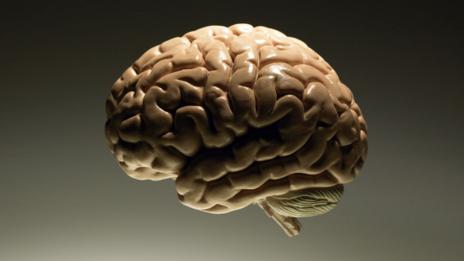Uri Avnery in Outlook India
"WE HAVE nothing to fear but fear itself," said President Franklin Delano Roosevelt. He was wrong.
Fear is a necessary condition for human survival. Most animals in nature possess it. It helps them to respond to dangers and evade or fight them. Human beings survive because they are fearful.
Fear is both individual and collective. Since its earliest days, the human race has lived in collectives. This is both a necessary and a desired condition. Early humans lived in tribes. The tribe defended their territory against all “strangers" — neighboring tribes — in order to safeguard their food supply and security. Fear was one of the uniting factors.
Belonging to one's tribe (which after many evolutions became a modern nation) is also a profound psychological need. It, too, is connected with fear — fear of other tribes, fear of other nations.
But fear can grow and become a monster.
RECENTLY I received a very interesting article by a young scientist, Yoav Litvin [*], dealing with this phenomenon.
It described, in scientific terms, how easily fear can be manipulated. The science involved was the research of the human brain, based on experiments with laboratory animals like mice and rats.
Nothing is easier than to create fear. For example, mice were given an electric shock while exposed to rock music. After some time, the mice showed reactions of extreme fear when the rock music was played, even without being given a shock. The music alone produced fear.
This could be reversed. For a long time, the music was played for them without the pain. Slowly, very slowly, the fear abated. But not completely: when, after a long time, a shock was again delivered with the music, the full symptoms of fear re-appeared immediately. Once was enough.
APPLY THIS to human nations, and the results are the same.
The Jews are a perfect laboratory specimen. Centuries of persecution in Europe taught them the value of fear. Smelling danger from afar, they learned to save themselves in time — generally by flight.
In Europe, the Jews were an exception, inviting victimizing. In the Byzantine (East Roman) Empire, Jews were normal. All over the empire, territorial peoples turned into ethnic-religious communities. A Jew in Alexandria could marry a Jewess in Antioch, but not the girl next door, if she happened to be an Orthodox Christian.
This "millet" system endured all through the Islamic Ottoman Empire, the British Mandate and still lives happily in today's State of Israel. An Israeli Jew cannot legally marry an Israeli Christian or Muslim in Israel.
This was the reason for the absence of anti-Semitism in the Arab world, apart from the detail that the Arabs are Semites themselves. Jews and Christians, the "peoples of the book", have a special status in an Islamic state (like Iran today), in some ways second-class, in some ways privileged (they do not have to serve in the army). Until the advent of Zionism, Arab Jews were no more fearful than most other human beings.
The situation in Europe was quite different. Christianity, which split off from Judaism, harbored a deep resentment towards the Jews from the start. The New Testament contains profoundly anti-Jewish descriptions of Jesus' death, which every Christian child learns at an impressionable age. And the fact that the Jews in Europe were the only people (apart from the gypsies) who had no homeland made them all the more suspicious and fear-inspiring.
The continued suffering of the Jews in Europe implanted a continuous and deep-seated fear in every European Jew. Every Jew was on continuous alert, consciously, unconsciously or subconsciously, even in times and countries which seemed far from any danger — like the Germany of my parents' youth.
My father was a prime example of this syndrome. He grew up in a family that had lived in Germany for generations. (My father, who had studied Latin, always insisted that our family had come to Germany with Julius Caesar.) But when the Nazis came to power, it took my father just a few days to decide to flee, and a few months later my family arrived happily in Palestine.
ON A personal note: my own experience with fear was also interesting. For me, at least.
When the Hebrew-Arab war of 1948 broke out, I naturally enlisted for combat duty. Before my first battle I was — literally — convulsed by fear. During the engagement, which happily was a light one, the fear left me, never to return. Just so. Disappeared.
In the following 50 or so engagements, including half a dozen major battles, I felt no fear.
I was very proud of this, but it was a stupid thing. Near the end of the war, when I was already a squad leader, I was ordered to take over a position which was exposed to enemy fire. I went to inspect it, walking almost upright in broad daylight, and was at once hit by an Egyptian armor-piercing bullet. Four of my soldiers, volunteers from Morocco, bravely got me out under fire. I arrived at the field hospital just in time to save my life.
Even this did not restore to me my lost fear. I still don't feel it, though I am aware that this is exceedingly stupid.
BACK TO my people.
The new Hebrew community in Palestine, founded by refugees from the pogroms of Moldavia, Poland, Ukraine and Russia, and later reinforced by the remnants of the Holocaust, lived in fear of their Arab neighbors, who revolted from time to time against the immigration.
The new community, called the Yishuv, took great pride in the heroism of its youth, which was quite able to defend itself, its towns and its villages. A whole cult grew up around the new Sabra ("cactus plant"), the fearless, heroic young Hebrew born in the country. When in the war of 1948, after prolonged and bitter fighting (we lost 6500 young men out of a community of 650,000 people) we eventually won, collective rational fear was replaced by irrational pride.
Here we were, a new nation on new soil, strong and self-reliant. We could afford to be fearless. But we were not.
Fearless people can make peace, reach a compromise with yesterday's enemy, reach out for co-existence and even friendship. This happened — more or less — in Europe after many centuries of continuous wars.
Not here. Fear of the "Arab World" was a permanent fixture in our national life, the picture of "little Israel surrounded by enemies" both an inner conviction and a propaganda ploy. War followed war, and each one produced new waves of anxiety.
This mixture of overweening pride and profound fears, a conqueror's mentality and permanent Angst, is a hallmark of today's Israel. Foreigners often suspect that this is make-believe, but it is quite real.
FEAR IS also the instrument of rulers. Create Fear and Rule. This has been a maxim of kings and dictators for ages.
In Israel, this is the easiest thing in the world. One has just to mention the Holocaust (or Shoah in Hebrew) and fear oozes from every pore of the national body.
Stoking Holocaust memories is a national industry. Children are sent to visit Auschwitz, their first trip abroad. The last Minister of Education decreed the introduction of Holocaust studies in kindergarten (seriously). There is a Holocaust Day — in addition to many other Jewish holidays, most of which commemorate some past conspiracy to kill the Jews.
The historical picture created in the mind of every Jewish child, in Israel as well as abroad, is, in the words of the Passover prayer read aloud every year in every Jewish family: "In every generation they arise against us to annihilate us, but God saves us from their hands!"
PEOPLE WONDER what is the special quality that enables Binyamin Netanyahu to be elected again and again, and rule practically alone, surrounded by a flock of noisy nobodies.
The person who knew him best, his own father, once declared that "Bibi" could be a good Foreign Minister, but on no account a Prime Minister. True, Netanyahu has a good voice and a real talent for television, but that is all. He is shallow, he has no world vision and no real vision for Israel, his historical knowledge is negligible.
But he has one real talent: fear-mongering. In this he has no equal.
There is hardly any major speech by Netanyahu, in Israel or abroad, without at least one mention of the Holocaust. After that, there comes the latest up-to-date fear-provoking image.
Once it was "international terrorism". The young Netanyahu wrote a book about it and established himself as an expert. In reality, this is nonsense. There is no such thing as international terrorism. It has been invented by charlatans, who build a career on it. Professors and such.
What is terrorism? Killing civilians? If so, the most hideous acts of terrorism in recent history were Dresden and Hiroshima. Killing civilians by non-state fighters? Take your pick. As I have said many times: "freedom fighters" are on my side, "terrorists" are on the other side.
Palestinians, and Arabs in general, are, of course, terrorists. They hate us for taking part of their land away. Obviously, you cannot make peace with perverse people like that. You can only fear and fight them.
When the field of terrorist-fighters became too crowded, Netanyahu switched to the Iranian bomb. There it was — the actual threat to our very existence. The Second Holocaust.
To my mind, this has always been ridiculous. The Iranians will not have a bomb, and if they did — they would not use it, because their own national annihilation would be guaranteed.
But take the Iranian bomb from Netanyahu, and what remains? No wonder he fought tooth and nail to keep it. But now it has been finally pushed away. What to do?
Don't worry. Bibi will find another threat, more blood-curdling than any before.
Just wait and tremble.
'People will forgive you for being wrong, but they will never forgive you for being right - especially if events prove you right while proving them wrong.' Thomas Sowell
Search This Blog
Showing posts with label angst. Show all posts
Showing posts with label angst. Show all posts
Saturday, 3 October 2015
Sunday, 19 April 2015
The surprising downsides of being clever
David Robson BBC Future
If ignorance is bliss, does a high IQ equal misery? Popular opinion would have it so. We tend to think of geniuses as being plagued by existential angst, frustration, and loneliness. Think of Virginia Woolf, Alan Turing, or Lisa Simpson – lone stars, isolated even as they burn their brightest. As Ernest Hemingway wrote: “Happiness in intelligent people is the rarest thing I know.” The harsh truth is that greater intelligence does not equate to wiser decisions — In fact, it can make you more foolish
The question may seem like a trivial matter concerning a select few – but the insights it offers could have ramifications for many. Much of our education system is aimed at improving academic intelligence; although its limits are well known, IQ is still the primary way of measuring cognitive abilities, and we spend millions on brain training and cognitive enhancers that try to improve those scores. But what if the quest for genius is itself a fool’s errand?

Anxiety can be common among the highly intelligent (Credit: Thinkstock)
The first steps to answering these questions were taken almost a century ago, at the height of the American Jazz Age. At the time, the new-fangled IQ test was gaining traction, after proving itself in World War One recruitment centres, and in 1926, psychologist Lewis Terman decided to use it to identify and study a group of gifted children. Combing California’s schools for the creme de la creme, he selected 1,500 pupils with an IQ of 140 or more – 80 of whom had IQs above 170. Together, they became known as the “Termites”, and the highs and lows of their lives are still being studied to this day.
As you might expect, many of the Termites did achieve wealth and fame – most notably Jess Oppenheimer, the writer of the classic 1950s sitcomI Love Lucy. Indeed, by the time his series aired on CBS, the Termites’ average salary was twice that of the average white-collar job. But not all the group met Terman’s expectations – there were many who pursued more “humble” professions such as police officers, seafarers, and typists. For this reason, Terman concluded that “intellect and achievement are far from perfectly correlated”. Nor did their smarts endow personal happiness. Over the course of their lives, levels of divorce, alcoholism and suicide were about the same as the national average.

It's lonely being smart (Credit: Thinkstock)
As the Termites enter their dotage, the moral of their story – that intelligence does not equate to a better life – has been told again and again. At best, a great intellect makes no differences to your life satisfaction; at worst, it can actually mean you are less fulfilled.
That’s not to say that everyone with a high IQ is a tortured genius, as popular culture might suggest – but it is nevertheless puzzling. Why don’t the benefits of sharper intelligence pay off in the long term?
A weighty burden
One possibility is that knowledge of your talents becomes something of a ball and chain. Indeed, during the 1990s, the surviving Termites were asked to look back at the events in their 80-year lifespan. Rather than basking in their successes, many reported that they had been plagued by the sense that they had somehow failed to live up to their youthful expectations.

Early achievers don't always go on to be successful (Credit: Thinkstock)
That sense of burden – particularly when combined with others’ expectations – is a recurring motif for many other gifted children. The most notable, and sad, case concerns the maths prodigy Sufiah Yusof. Enrolled at Oxford University aged 12, she dropped out of her course before taking her finals and started waitressing. She later worked as a call girl, entertaining clients with her ability to recite equations during sexual acts.
Another common complaint, often heard in student bars and internet forums, is that smarter people somehow have a clearer vision of the world’s failings. Whereas the rest of us are blinkered from existential angst, smarter people lay awake agonising over the human condition or other people’s folly.
Constant worrying may, in fact, be a sign of intelligence – but not in the way these armchair philosophers had imagined. Interviewing students on campus about various topics of discussion, Alexander Penney at MacEwan University in Canada found that those with the higher IQ did indeed feel more anxiety throughout the day. Interestingly, most worries were mundane, day-to-day concerns, though; the high-IQ students were far more likely to be replaying an awkward conversation, than asking the “big questions”. “It’s not that their worries were more profound, but they are just worrying more often about more things,” says Penney. “If something negative happened, they thought about it more.”

(Credit: Thinkstock)
Probing more deeply, Penney found that this seemed to correlate with verbal intelligence – the kind tested by word games in IQ tests, compared to prowess at spatial puzzles (which, in fact, seemed to reduce the risk of anxiety). He speculates that greater eloquence might also make you more likely to verbalise anxieties and ruminate over them. It’s not necessarily a disadvantage, though. “Maybe they were problem-solving a bit more than most people,” he says – which might help them to learn from their mistakes.
Mental blind spots
The harsh truth, however, is that greater intelligence does not equate to wiser decisions; in fact, in some cases it might make your choices a little more foolish. Keith Stanovich at the University of Toronto has spent the last decade building tests for rationality, and he has found that fair, unbiased decision-making is largely independent of IQ. Consider the “my-side bias” – our tendency to be highly selective in the information we collect so that it reinforces our previous attitudes. The more enlightened approach would be to leave your assumptions at the door as you build your argument – but Stanovich found that smarter people are almost no more likely to do so than people with distinctly average IQs.
That’s not all. People who ace standard cognitive tests are in fact slightly more likely to have a “bias blind spot”. That is, they are less able to see their own flaws, even when though they are quite capable of criticising the foibles of others. And they have a greater tendency to fall for the“gambler’s fallacy” – the idea that if a tossed coin turns heads 10 times, it will be more likely to fall tails on the 11th. The fallacy has been the ruination of roulette players planning for a red after a string of blacks, and it can also lead stock investors to sell their shares before they reach peak value – in the belief that their luck has to run out sooner or later.

Members of high IQ society Mensa are not immune to belief in the paranormal (Credit: Thinkstock)
A tendency to rely on gut instincts rather than rational thought might also explain why a surprisingly high number of Mensa members believe in the paranormal; or why someone with an IQ of 140 is about twice as likely to max out their credit card.
Indeed, Stanovich sees these biases in every strata of society. “There is plenty of dysrationalia – people doing irrational things despite more than adequate intelligence – in our world today,” he says. “The people pushing the anti-vaccination meme on parents and spreading misinformation on websites are generally of more than average intelligence and education.” Clearly, clever people can be dangerously, and foolishly, misguided.

People with an IQ above 140 are twice as likely to overspend on their credit card (Credit: Thinkstock)
So if intelligence doesn’t lead to rational decisions and a better life, what does? Igor Grossmann, at the University of Waterloo in Canada, thinks we need to turn our minds to an age-old concept: “wisdom”. His approach is more scientific that it might at first sound. “The concept of wisdom has an ethereal quality to it,” he admits. “But if you look at the lay definition of wisdom, many people would agree it’s the idea of someone who can make good unbiased judgement.”
In one experiment, Grossmann presented his volunteers with different social dilemmas – ranging from what to do about the war in Crimea to heartfelt crises disclosed to Dear Abby, the Washington Post’s agony aunt. As the volunteers talked, a panel of psychologists judged their reasoning and weakness to bias: whether it was a rounded argument, whether the candidates were ready to admit the limits of their knowledge – their “intellectual humility” – and whether they were ignoring important details that didn’t fit their theory.

High achievers tend to lament opportunities missed in their lives (Credit: Thinkstock)
High scores turned out to predict greater life satisfaction, relationship quality, and, crucially, reduced anxiety and rumination – all the qualities that seem to be absent in classically smart people. Wiser reasoning even seemed to ensure a longer life – those with the higher scores were less likely to die over intervening years. Crucially, Grossmann found that IQ was not related to any of these measures, and certainly didn’t predict greater wisdom. “People who are very sharp may generate, very quickly, arguments [for] why their claims are the correct ones – but may do it in a very biased fashion.”
Learnt wisdom
In the future, employers may well begin to start testing these abilities in place of IQ; Google has already announced that it plans to screen candidates for qualities like intellectual humility, rather than sheer cognitive prowess.
Fortunately, wisdom is probably not set in stone – whatever your IQ score. “I’m a strong believer that wisdom can be trained,” says Grossmann. He points out that we often find it easier to leave our biases behind when we consider other people, rather than ourselves. Along these lines, he has found that simply talking through your problems in the third person (“he” or “she”, rather than “I”) helps create the necessary emotional distance, reducing your prejudices and leading to wiser arguments. Hopefully, more research will suggest many similar tricks.
The challenge will be getting people to admit their own foibles. If you’ve been able to rest on the laurels of your intelligence all your life, it could be very hard to accept that it has been blinding your judgement. As Socrates had it: the wisest person really may be the one who can admit he knows nothing.
If ignorance is bliss, does a high IQ equal misery? Popular opinion would have it so. We tend to think of geniuses as being plagued by existential angst, frustration, and loneliness. Think of Virginia Woolf, Alan Turing, or Lisa Simpson – lone stars, isolated even as they burn their brightest. As Ernest Hemingway wrote: “Happiness in intelligent people is the rarest thing I know.” The harsh truth is that greater intelligence does not equate to wiser decisions — In fact, it can make you more foolish
The question may seem like a trivial matter concerning a select few – but the insights it offers could have ramifications for many. Much of our education system is aimed at improving academic intelligence; although its limits are well known, IQ is still the primary way of measuring cognitive abilities, and we spend millions on brain training and cognitive enhancers that try to improve those scores. But what if the quest for genius is itself a fool’s errand?

Anxiety can be common among the highly intelligent (Credit: Thinkstock)
The first steps to answering these questions were taken almost a century ago, at the height of the American Jazz Age. At the time, the new-fangled IQ test was gaining traction, after proving itself in World War One recruitment centres, and in 1926, psychologist Lewis Terman decided to use it to identify and study a group of gifted children. Combing California’s schools for the creme de la creme, he selected 1,500 pupils with an IQ of 140 or more – 80 of whom had IQs above 170. Together, they became known as the “Termites”, and the highs and lows of their lives are still being studied to this day.
As you might expect, many of the Termites did achieve wealth and fame – most notably Jess Oppenheimer, the writer of the classic 1950s sitcomI Love Lucy. Indeed, by the time his series aired on CBS, the Termites’ average salary was twice that of the average white-collar job. But not all the group met Terman’s expectations – there were many who pursued more “humble” professions such as police officers, seafarers, and typists. For this reason, Terman concluded that “intellect and achievement are far from perfectly correlated”. Nor did their smarts endow personal happiness. Over the course of their lives, levels of divorce, alcoholism and suicide were about the same as the national average.

It's lonely being smart (Credit: Thinkstock)
As the Termites enter their dotage, the moral of their story – that intelligence does not equate to a better life – has been told again and again. At best, a great intellect makes no differences to your life satisfaction; at worst, it can actually mean you are less fulfilled.
That’s not to say that everyone with a high IQ is a tortured genius, as popular culture might suggest – but it is nevertheless puzzling. Why don’t the benefits of sharper intelligence pay off in the long term?
A weighty burden
One possibility is that knowledge of your talents becomes something of a ball and chain. Indeed, during the 1990s, the surviving Termites were asked to look back at the events in their 80-year lifespan. Rather than basking in their successes, many reported that they had been plagued by the sense that they had somehow failed to live up to their youthful expectations.

Early achievers don't always go on to be successful (Credit: Thinkstock)
That sense of burden – particularly when combined with others’ expectations – is a recurring motif for many other gifted children. The most notable, and sad, case concerns the maths prodigy Sufiah Yusof. Enrolled at Oxford University aged 12, she dropped out of her course before taking her finals and started waitressing. She later worked as a call girl, entertaining clients with her ability to recite equations during sexual acts.
Another common complaint, often heard in student bars and internet forums, is that smarter people somehow have a clearer vision of the world’s failings. Whereas the rest of us are blinkered from existential angst, smarter people lay awake agonising over the human condition or other people’s folly.
Constant worrying may, in fact, be a sign of intelligence – but not in the way these armchair philosophers had imagined. Interviewing students on campus about various topics of discussion, Alexander Penney at MacEwan University in Canada found that those with the higher IQ did indeed feel more anxiety throughout the day. Interestingly, most worries were mundane, day-to-day concerns, though; the high-IQ students were far more likely to be replaying an awkward conversation, than asking the “big questions”. “It’s not that their worries were more profound, but they are just worrying more often about more things,” says Penney. “If something negative happened, they thought about it more.”

(Credit: Thinkstock)
Probing more deeply, Penney found that this seemed to correlate with verbal intelligence – the kind tested by word games in IQ tests, compared to prowess at spatial puzzles (which, in fact, seemed to reduce the risk of anxiety). He speculates that greater eloquence might also make you more likely to verbalise anxieties and ruminate over them. It’s not necessarily a disadvantage, though. “Maybe they were problem-solving a bit more than most people,” he says – which might help them to learn from their mistakes.
Mental blind spots
The harsh truth, however, is that greater intelligence does not equate to wiser decisions; in fact, in some cases it might make your choices a little more foolish. Keith Stanovich at the University of Toronto has spent the last decade building tests for rationality, and he has found that fair, unbiased decision-making is largely independent of IQ. Consider the “my-side bias” – our tendency to be highly selective in the information we collect so that it reinforces our previous attitudes. The more enlightened approach would be to leave your assumptions at the door as you build your argument – but Stanovich found that smarter people are almost no more likely to do so than people with distinctly average IQs.
That’s not all. People who ace standard cognitive tests are in fact slightly more likely to have a “bias blind spot”. That is, they are less able to see their own flaws, even when though they are quite capable of criticising the foibles of others. And they have a greater tendency to fall for the“gambler’s fallacy” – the idea that if a tossed coin turns heads 10 times, it will be more likely to fall tails on the 11th. The fallacy has been the ruination of roulette players planning for a red after a string of blacks, and it can also lead stock investors to sell their shares before they reach peak value – in the belief that their luck has to run out sooner or later.

Members of high IQ society Mensa are not immune to belief in the paranormal (Credit: Thinkstock)
A tendency to rely on gut instincts rather than rational thought might also explain why a surprisingly high number of Mensa members believe in the paranormal; or why someone with an IQ of 140 is about twice as likely to max out their credit card.
Indeed, Stanovich sees these biases in every strata of society. “There is plenty of dysrationalia – people doing irrational things despite more than adequate intelligence – in our world today,” he says. “The people pushing the anti-vaccination meme on parents and spreading misinformation on websites are generally of more than average intelligence and education.” Clearly, clever people can be dangerously, and foolishly, misguided.

People with an IQ above 140 are twice as likely to overspend on their credit card (Credit: Thinkstock)
So if intelligence doesn’t lead to rational decisions and a better life, what does? Igor Grossmann, at the University of Waterloo in Canada, thinks we need to turn our minds to an age-old concept: “wisdom”. His approach is more scientific that it might at first sound. “The concept of wisdom has an ethereal quality to it,” he admits. “But if you look at the lay definition of wisdom, many people would agree it’s the idea of someone who can make good unbiased judgement.”
In one experiment, Grossmann presented his volunteers with different social dilemmas – ranging from what to do about the war in Crimea to heartfelt crises disclosed to Dear Abby, the Washington Post’s agony aunt. As the volunteers talked, a panel of psychologists judged their reasoning and weakness to bias: whether it was a rounded argument, whether the candidates were ready to admit the limits of their knowledge – their “intellectual humility” – and whether they were ignoring important details that didn’t fit their theory.

High achievers tend to lament opportunities missed in their lives (Credit: Thinkstock)
High scores turned out to predict greater life satisfaction, relationship quality, and, crucially, reduced anxiety and rumination – all the qualities that seem to be absent in classically smart people. Wiser reasoning even seemed to ensure a longer life – those with the higher scores were less likely to die over intervening years. Crucially, Grossmann found that IQ was not related to any of these measures, and certainly didn’t predict greater wisdom. “People who are very sharp may generate, very quickly, arguments [for] why their claims are the correct ones – but may do it in a very biased fashion.”
Learnt wisdom
In the future, employers may well begin to start testing these abilities in place of IQ; Google has already announced that it plans to screen candidates for qualities like intellectual humility, rather than sheer cognitive prowess.
Fortunately, wisdom is probably not set in stone – whatever your IQ score. “I’m a strong believer that wisdom can be trained,” says Grossmann. He points out that we often find it easier to leave our biases behind when we consider other people, rather than ourselves. Along these lines, he has found that simply talking through your problems in the third person (“he” or “she”, rather than “I”) helps create the necessary emotional distance, reducing your prejudices and leading to wiser arguments. Hopefully, more research will suggest many similar tricks.
The challenge will be getting people to admit their own foibles. If you’ve been able to rest on the laurels of your intelligence all your life, it could be very hard to accept that it has been blinding your judgement. As Socrates had it: the wisest person really may be the one who can admit he knows nothing.
Saturday, 11 August 2012
I is the most important letter in a cricket team
By Girish Menon
In a recent article in The Telegraph, Geoffrey Boycott
mentioned, there is no I in a cricket team and hence implying that Kevin
Pietersen should kowtow to the diktats of the team's leaders. In this piece I will
argue that I believe the individual, I, is the elephant in a cricket team's
dressing room and by ignoring it won't we be behaving like an ostrich burying
its head in the sand?
In cricket there are three principal activities viz.
batting, bowling and fielding and in each activity the individual player is the
most important actor. Let me try to explain this idea by contrasting it with football. In football, a defender can ask for help from another teammate to police and
control a forward from the opposite team. Other players can pass the ball, run
into open spaces etc to help a team mate come out of a sticky situation. The
goalkeeper appears to be the only individual in this team sport.
In cricket, while batting no team mate can help a batter
combat the aggression of a Morkel or the wiles of a Murali. The individual has
to face the ball delivered by a bowler. A team mate may take a single of the
last ball of each over and shield his partner, but there is no way he can face
the ball for his partner should he find himself at the receiving end. In
contrast, defenders in football can act in pairs to ward of an attack by an opposing forward.
It gets even more individual when it gets to bowling. The
bowler has to run up and deliver the ball on his own accord. The rest of his
teammates enter the game only subsequently after the batter has reacted to the
delivery. In football, a forward can pass the ball to a team mate thereby
beating the goalkeeper and creating an open goal situation for his teammate to
score.
Similarly whilst fielding too it is the individual who is
responsible for delivering the goods and any discussion of individualism in
cricket will not be complete without a discussion of the role of the most
important individual in a cricket team viz. the captain. The captain's
individual idiosyncrasies affect not only the fortune of the team but also the
careers of the other team members in the squad.
In the book, One More Over,
Erapalli Prasanna talked about how under Bishen Bedi's captaincy he was brought
on to bowl only after the batsmen were well established at the crease. I'm sure
that cricket watchers and players will have innumerable stories about the
decisions of captains that have affected a game as well as individual careers.
In a recent article Ed Smith talked about TheBresnan Effect on the English team's outcomes in recent cricket matches due to the inclusion of Tim Bresnan in the team.
While admitting the difficulty of measuring Bresnan's impact on England or more
famously that of Shane Battier on the Houston Rockets; Smith implicitly
recognises the individual's role in the fortunes of a team. My thesis therefore
is that the absence of an adequate tool to evaluate an individual's performance
should not therefore lead us to conclude erroneously like Boycott that there is
no 'I' in a cricket team.
After all if there is no 'I' in a cricket team; then why are
some individuals from a losing team retained while the less fortunate ones
dropped. If there is collective responsibility then like the voting out of a
political party all members of a cricket team should be dropped in case of
failure. Since that does not happen it would be
foolish for anybody, and especially Boycott, to argue against
individualism in cricket.
Subscribe to:
Comments (Atom)
